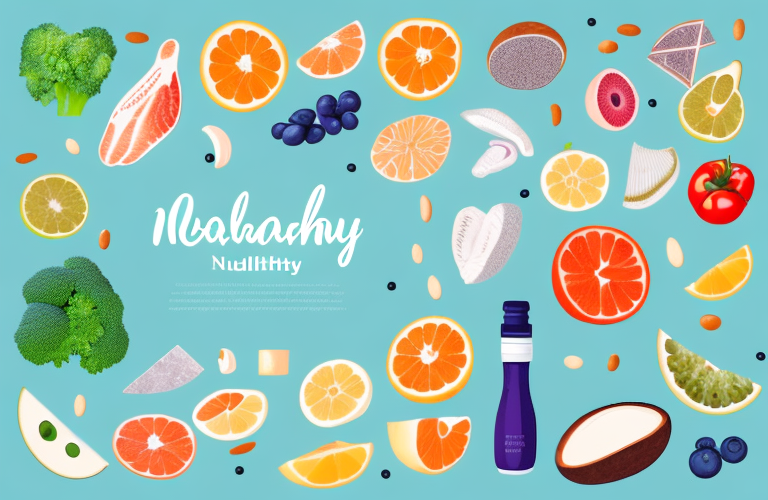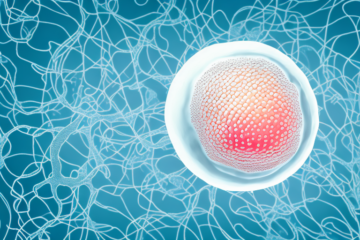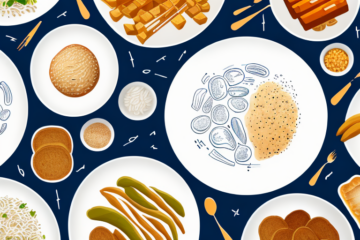Beautiful, healthy skin is not just about external care such as cleansing and moisturizing. The food you eat plays a big role in determining the state of your skin. Proper nutrition is essential for healthy skin, and certain nutrients can provide the nourishment and protection your skin needs to stay beautiful and healthy.
The Importance of Proper Nutrition for Skin Health
When it comes to skin health, proper nutrition is key. Your skin is the largest organ of the body and needs essential nutrients to function properly. A diet that is rich in vitamins, minerals and antioxidants not only helps to protect against sun damage, but also promotes collagen production, which is essential for maintaining young and healthy skin. On the other hand, a diet that is high in sugar, refined carbohydrates, and processed foods can cause skin inflammation, breakouts and premature aging.
In addition to a healthy diet, staying hydrated is also important for skin health. Drinking enough water helps to flush out toxins from the body and keeps the skin hydrated, which can prevent dryness and wrinkles. It is recommended to drink at least 8 glasses of water per day to maintain optimal skin health.
Nutrients That Nourish and Protect Your Skin
There are several essential nutrients that are important for skin health. Vitamin A is important for skin regeneration and repair, and can be found in foods such as sweet potatoes, carrots, and leafy greens. Vitamin C is crucial for collagen production and can be found in citrus fruits, broccoli, and bell peppers. Vitamin E is a powerful antioxidant that protects against sun damage and can be found in nuts, seeds, and leafy greens. Selenium and zinc are also important minerals that have been shown to benefit the skin.
In addition to these essential nutrients, it is also important to stay hydrated for healthy skin. Drinking enough water helps to flush out toxins and keep skin looking plump and hydrated. Additionally, getting enough sleep and managing stress levels can also have a positive impact on skin health. Lack of sleep and high stress levels can lead to inflammation and breakouts, so it is important to prioritize self-care for healthy skin.
Superfoods for Glowing, Radiant Skin
There are some superfoods that are particularly rich in the vitamins and nutrients that are best for the skin. Berries are rich in antioxidants that protect against damage from free radicals. Avocado is rich in healthy fats that can keep the skin moisturized and supple. Dark chocolate, in moderation, contains flavonoids that can protect against UV damage. Green tea has anti-inflammatory and antioxidant properties, and can reduce redness and irritation.
In addition to these superfoods, there are other foods that can also benefit the skin. Sweet potatoes are rich in beta-carotene, which can help to improve skin texture and tone. Fatty fish, such as salmon and tuna, are high in omega-3 fatty acids, which can reduce inflammation and improve skin hydration. Nuts, such as almonds and walnuts, are rich in vitamin E, which can help to protect the skin from damage caused by the sun and other environmental factors.
It’s important to remember that while superfoods can be beneficial for the skin, they should be part of a balanced diet that includes a variety of fruits, vegetables, whole grains, and lean proteins. Drinking plenty of water and getting enough sleep are also important for maintaining healthy, radiant skin.
The Link Between Gut Health and Skin Health
There is a strong connection between gut health and skin health. Your gut is home to trillions of bacteria that help to maintain overall health, including skin health. An unhealthy gut can lead to inflammation and other skin problems, such as acne, rosacea, and eczema. Probiotics, or good bacteria, can help to balance the gut microbiome and improve skin health.
In addition to probiotics, a healthy diet rich in fiber and nutrients can also support gut health and improve skin health. Foods like fruits, vegetables, whole grains, and lean proteins can provide the necessary nutrients for a healthy gut and glowing skin. It’s important to also stay hydrated and limit processed foods and sugar, which can negatively impact gut health and lead to skin issues.
How to Incorporate Skin-Boosting Foods into Your Diet
Incorporating skin-boosting foods into your diet is easy. Start by adding more fruits and vegetables to your meals. Snack on nuts and seeds between meals, and include fatty fish such as salmon and tuna in your diet. Swap out unhealthy snacks like chips and candy for healthier options like veggie sticks and hummus. Experiment with new superfoods such as chia seeds and quinoa.
Another way to incorporate skin-boosting foods into your diet is by drinking green tea. Green tea is rich in antioxidants that help protect your skin from damage caused by free radicals. You can also add spices like turmeric and ginger to your meals. These spices have anti-inflammatory properties that can help reduce skin inflammation and improve overall skin health.
It’s important to remember that a balanced diet is key to healthy skin. Make sure you’re getting enough protein, healthy fats, and complex carbohydrates. Avoid processed foods and sugary drinks, as they can contribute to skin problems like acne and premature aging. Drinking plenty of water is also essential for keeping your skin hydrated and healthy.
Foods to Avoid for Clear, Healthy Skin
It is just as important to know the foods that you should avoid for clear, healthy skin. Stay away from foods that are high in sugar, refined carbohydrates, and processed foods. These can cause inflammation in the body and lead to acne and premature aging. Avoid dairy products, which have been linked to acne, and limit alcohol and caffeine, which can dehydrate the skin.
In addition to avoiding certain foods, it is also important to incorporate skin-healthy foods into your diet. Foods that are high in antioxidants, such as berries, leafy greens, and nuts, can help protect your skin from damage caused by free radicals. Omega-3 fatty acids, found in fatty fish like salmon and sardines, can also help keep your skin looking healthy and youthful.
Another factor to consider is how you prepare your food. Fried and greasy foods can contribute to oily skin and clogged pores. Instead, opt for grilled, baked, or steamed options. Additionally, drinking plenty of water can help keep your skin hydrated and flush out toxins that can contribute to skin issues.
Natural Remedies for Common Skin Conditions
There are several natural remedies that you can try at home to treat common skin conditions. For oily skin, use a face mask made with bentonite clay, which can absorb excess oil and unclog pores. For dry skin, try using coconut oil as a moisturizer. Aloe vera gel is great for treating sunburn and reducing redness. Tea tree oil can be used as a spot treatment for acne.
In addition to these remedies, there are other natural ingredients that can help improve the overall health of your skin. For example, green tea contains antioxidants that can help protect your skin from damage caused by free radicals. You can brew a cup of green tea and use it as a toner or mix it with honey to create a face mask.
Another natural remedy for skin conditions is apple cider vinegar. It has antibacterial properties that can help fight acne and reduce inflammation. You can dilute apple cider vinegar with water and use it as a toner or mix it with honey to create a face mask. However, it’s important to note that apple cider vinegar can be harsh on the skin, so it’s best to use it in moderation.
Hydration and its Effect on Your Skin
Staying hydrated is important for overall health, and it is essential for maintaining healthy skin. Dehydration can cause dry, flaky skin and make fine lines and wrinkles more visible. Drink plenty of water throughout the day and eat foods with high water content, such as watermelon and cucumber, to keep your skin hydrated and healthy.
In addition to drinking water and eating water-rich foods, using a moisturizer can also help keep your skin hydrated. Look for a moisturizer that contains ingredients like hyaluronic acid, glycerin, or ceramides, which help to lock in moisture and keep your skin looking plump and youthful. Applying a moisturizer after showering or washing your face can also help to prevent moisture loss.
The Role of Vitamins in Maintaining Healthy Skin
Vitamins play a crucial role in maintaining healthy skin. Vitamin C is essential for collagen production, which keeps the skin supple and young-looking. Vitamin E is a powerful antioxidant that protects against sun damage. Vitamin A helps to regenerate skin cells, while vitamin K can reduce dark circles and puffiness under the eyes. B vitamins are also important for skin health, as they help to reduce inflammation and redness.
In addition to these vitamins, it is important to maintain a balanced diet and stay hydrated to keep your skin healthy. Drinking plenty of water helps to flush out toxins and keep the skin hydrated, while a diet rich in fruits, vegetables, and whole grains provides essential nutrients for skin health. It is also important to protect your skin from the sun by wearing sunscreen and avoiding prolonged exposure during peak hours.
Skincare Products to Complement a Healthy Diet
While proper nutrition is essential for healthy skin, skincare products can also help to complement a healthy diet. Look for products that are rich in antioxidants and vitamins, such as vitamin C serums and retinol creams. Use a gentle cleanser and moisturizer to keep your skin clean and hydrated, and don’t forget to wear sunscreen every day to protect against sun damage.
In addition to using skincare products that are rich in antioxidants and vitamins, it’s important to choose products that are suitable for your skin type. If you have oily skin, look for products that are oil-free and non-comedogenic to avoid clogging your pores. If you have dry skin, opt for products that are hydrating and moisturizing. It’s also a good idea to patch test new products before using them all over your face to avoid any potential allergic reactions or irritation.
Topical Treatments for Acne-Prone Skin
For those with acne-prone skin, there are several topical treatments that can help. Salicylic acid is a common ingredient in acne products as it helps to exfoliate the skin and unclog pores. Benzoyl peroxide is another popular ingredient that kills acne-causing bacteria. Tea tree oil, as mentioned earlier, is also a natural option for treating acne.
In addition to these common topical treatments, there are also prescription options available for those with severe acne. Retinoids, such as tretinoin and adapalene, are vitamin A derivatives that can help to unclog pores and reduce inflammation. Topical antibiotics, such as clindamycin and erythromycin, can also be prescribed to help kill acne-causing bacteria.
It’s important to note that while topical treatments can be effective for treating acne, they may also have side effects such as dryness, redness, and irritation. It’s best to start with a lower concentration and gradually increase as tolerated. It’s also important to use sunscreen when using these treatments as they can increase sensitivity to the sun.
Anti-Aging Foods to Keep Your Skin Youthful
While aging is a natural process, there are foods you can eat to slow down the signs of aging. Foods that are rich in antioxidants, such as blueberries and green tea, can prevent damage from free radicals. Omega-3 fatty acids from sources like salmon and walnuts can help to keep the skin moisturized and prevent wrinkles. Leafy greens, such as kale and spinach, are rich in vitamin C and iron, which helps to maintain collagen in the skin.
In addition to these foods, it is important to stay hydrated by drinking plenty of water. Dehydration can cause the skin to appear dull and dry, which can accentuate fine lines and wrinkles. Drinking water can also help to flush out toxins from the body, which can contribute to aging.
Another important factor in maintaining youthful skin is getting enough sleep. During sleep, the body repairs and regenerates cells, including skin cells. Lack of sleep can lead to dark circles under the eyes and a tired, aged appearance. Aim for 7-8 hours of sleep per night to help keep your skin looking its best.
The Connection Between Stress and Skin Health
Stress can have a big impact on skin health. When you are stressed, your body produces more cortisol, a hormone that can cause inflammation and breakouts. In addition, stress can cause you to neglect your skincare routine, which can lead to further problems. Try to manage stress through relaxation techniques such as deep breathing and meditation, and make sure to take care of your skin even during busy times.
In conclusion, proper nutrition is essential for healthy skin. Incorporating skin-boosting foods into your diet, avoiding unhealthy foods, and paying attention to your skincare routine can all help to maintain beautiful, glowing skin. By nourishing your body from the inside out and taking care of your skin on the outside, you can achieve the healthy, radiant skin you deserve.
Another way stress can affect skin health is by causing premature aging. When cortisol levels are high, it can break down collagen, which is responsible for keeping skin firm and elastic. This can lead to wrinkles and fine lines. Additionally, stress can cause dehydration, which can make skin look dull and tired.
It’s important to note that stress can also exacerbate existing skin conditions such as eczema, psoriasis, and rosacea. These conditions can cause discomfort and embarrassment, and stress can make them worse. If you have a skin condition, it’s important to manage stress levels and seek treatment from a dermatologist to keep it under control.










